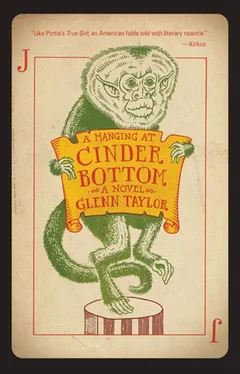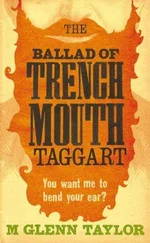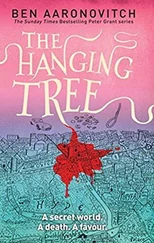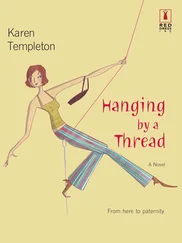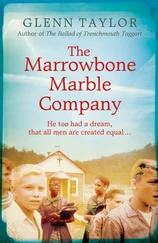Sallie walked from the kitchen and stood next to Abe. She used her teeth to scrape dough off her thumb. “You be careful with him on those stairs,” she told the girl. She leaned close to Abe and said, “You remember Agnes?”
He nodded that he did.
“She believes herself capable of anything.”
“How old is she?”
“I’m seven,” she answered, careful to keep her eye on the step below as she came, Ben clutched in one arm, stair rail in the other.
“And that’s Benjamin,” Sallie said. “He came to us last year. Turned one in December.” She took the boy from Agnes, who stood on the bottom stair breathing heavy and shaking out her arm. Sallie held Benjamin up for Abe to see. “He’s a catbird,” she said. “Smart as a switch.”
“He’s a shade darker isn’t he?” Abe said.
“Yes he is,” his mother answered.
“Ain’t I smart as a switch?” Agnes asked.
“Smarter,” Sallie told her. “More like a horsewhip.”
The girl smiled and pushed her tongue through the new gap in her teeth. She looked at Abe. “You want me to read to you?”
“Well,” Abe said. “You could read a little—”
“What’s your favorite book?”
“Well, I—”
“Mine’s Fuz-Buz the Fly . You want me to read it to you?” She didn’t wait for an answer. Halfway up the staircase, she stopped her full-speed ascent and turned back to him. She said, “You want me to take you to see Uncle Jake?”
He nodded that he did.
Agnes said, “He’s dying.”
Sallie went to the kitchen with the baby.
Abe started up the stairs. The girl waited on him and held out her hand and he took it.
The air inside the room was foul. An infectious scent from someplace inside bone. Jake lay on his side, swollen as a tick at the wrists, a pillow between his black fingers. The skin at his neck was mottled a purple constellation. A blanket was gathered around his knees.
Agnes said she’d be across the hall if he needed her.
Abe went to the bedside.
He looked at his brother. The eyes were motionless under the lids.
For a time, when Abe was five and his mother could not get out of bed, he was beset by a brand of nightmares no child should possess. Al had hired a woman in town to take care of the boys while he tended to Sallie, and for a month, all three boys lived in the rooms above the saloon. Abe would awake in the night scarcely able to breathe from what he’d seen behind his eyelids. It made him feel better to walk down the hall and stand at little Sam’s crib and listen for the sound of his breath. He did so nightly for three weeks. Once, Jake too had awakened and followed his younger brother. He watched Abe watch the baby. “What are you doing?” Jake had whispered, and it startled Abe, electrified his pores. He didn’t answer. Jake walked to him and took him by the hand and led him past the sleeping woman and back down the hall to his bed. He tucked the scrap square quilt around Abe’s shoulders. He told him, “Some folks say prayers when they go to sleep.”
“Do you?” Abe asked him.
“No.” There were still a couple patrons in the saloon below their floorboards. One of them shouted to another that he wanted a dozen fried eggs. “Go back to sleep,” Jake had told his younger brother. Then he got in bed and put his pillow over his head.
Abe had shut his eyes then and tried to think of a prayer. He didn’t know any.
Now here was Jake, asleep with his eyes still as could be, painted in the onset of death’s shallow hue. Abe thought momentarily of putting a pillow over his head and holding it down.
He cried. And then he did not.
He put his hand to the side of Jake’s face and told him goodbye.
Goldie came in the room. “I’ll sit with him awhile,” she said.
They brushed against each other by the doorway, and he nearly pulled her to him.
Out in the hall, he pressed his ear to the closed door of the front bedroom. A man on the other side cleared his throat. Abe thought he could hear a pen scratching paper.
In the kitchen, Sallie cut her rolled-out biscuit dough with a musket-cap tin. When they’d all been cut, she watched the yard outside the window where a single-file line of chickens high-stepped a faint path. She’d told Al to kill one for supper, and she suspected he’d forgotten. For three days, he’d kept to the second house as much as ten hours at a time. His shop was in the living room there.
Agnes sat at the table and read to herself, her posture stooped, her lips forming whispered syllables to conjure in her mind the cannibalism of infants and proper women.
Abe had come down the stairs. He stood in the kitchen doorway. He watched Agnes read, and he watched his mother stare out the window. Baby Ben held her by the knee, his feet on top of hers. “Who is that up in the big bedroom?” he asked.
Sallie held her gaze out the window. “He’s our boarder at present,” she said.
“Just one?”
“Things have changed.” She shooed Ben, opened the oven door with the hem of her skirt, and slid in the biscuits. “It’ll be awhile on the chicken. Go on over to the second house and see your daddy,” she said. “He’ll be in there working.”
Al Baach hummed Yankee Doodle while he worked. He had a boot upside down on his iron stand. He was putting in new ball calks.
Abe watched him through the living room window, stooped over the workbench. His backside rested on a tall barstool. He wore a black canvas kippah on the crown of his head and his hair was unruly and streaked in gray.
Abe tapped on the window. When his father turned and saw him there, he dropped his pincers to the floor and put his hand to his mouth.
Inside, Al Baach held his middle boy and cried.
It was something Abe had never seen him do before.
Then, just as quick as he’d started, he wiped his eyes and picked up his pincers. He groaned when he bent. He sat back against his stool and twisted another calk into the boot sole.
The smell of leather cement was heavy. Al’s back was wide and his posture old. A cane leaned against the leg of the workbench.
“I heard about your knee,” Abe said.
“You go and see Jake?”
“Yes.”
“You say goodbye to him?”
“Yes.” It was quiet save the groan of the floor under Al’s stool and the cold twisting of his little spikes into place. Abe stepped closer to watch him work. “Cork boots?” he said. “You takin up logging on a bad knee?”
Al looked over his shoulder wide-eyed. “These boots?” he said. “These boots I am making for Mr. Henry Trent so he can better step on us and kill us with a thousand tiny wounds.” He scratched his head with the pincers and turned back to his work.
“I’ve never seen you wear a skull cap before.”
“Yes, my smoking cap.” Al said. “The wife of my Lithuanian friend make it for me. You like it?”
Abe didn’t say one way or the other before Al continued.
“I still don’t go to synagogue, but my head stays warm in the cold.” And he turned again to his son, and with the pincers he lifted the kippah and bowed his head. “You see?” he asked. “You see how it is to get old?”
Abe could see the scalp through long strings of hair.
Al dropped the cap back on his head. He took the boot off the iron stand and looked into the black open throat. He set down the pincers and said, “Your mother talks to me at night when she thinks I am sleeping.” He picked up an awl and pushed at something inside. “In the morning I tell her I agree with everything she said. And I do. Women are smarter than men, Abraham. We should have had you boys in synagogue, in a church, doesn’t matter. Friday, Saturday, Sunday, doesn’t matter.”
“You always said they didn’t want you there.”
Читать дальше
Конец ознакомительного отрывка
Купить книгу
